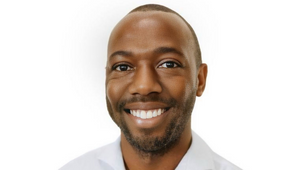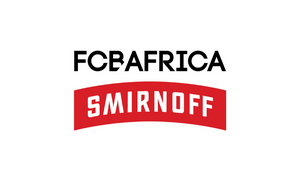
Planning for the Best: Why Zachary Kingston Is Always Thinking a Few Moves Ahead

Zachary Kingston, chief strategy officer of FCB Africa, combines strategic expertise, creativity, and a global perspective from his work in Italy, London, Hong Kong, and South Africa. He’s led growth for major brands like AB InBev and Samsung South Africa, driving innovation and large-scale brand success.
Notable achievements include being part of the teams that repositioned MTN Africa, elevated Flying Fish into South Africa’s top 20 brands, and shaping the ABSA-Barclays merger strategy. With a masters in strategic marketing from Imperial College London, Zachary excels in blending data-driven insights with emotive storytelling to deliver impactful, results-driven strategies.
LBB> What do you think is the difference between a strategist and a planner? Is there one?
Zachary> Imagine the strategist as the architect and the planner as the project manager. The strategist dreams up the bold vision – sometimes disruptive, always ambitious – and the planner maps out how to turn that dream into reality, ensuring every step aligns with the vision.
Both need each other like peanut butter needs jelly, but one paints in broad strokes while the other ensures precision in execution. So, whilst there is a difference, the best strategists are effective planners, and the best planners have strong strategic acumen.
LBB> Which role, strategist or planner, best describes your approach to work? / Do you consider yourself more of a strategist or a planner in your work?
Zachary> I'm definitely a strategist. I like to think of myself as someone who thrives on unlocking possibilities. My approach is more about charting new territory, pushing boundaries, and envisioning what could be rather than simply what should be.
It’s like playing a complex game of chess – I’m always thinking a few moves ahead, figuring out how the pieces on the board fit together to create a winning strategy. While I can plan when needed, I lean into the bold strokes of strategy first, always looking to put the puzzle pieces together in ways that create a bigger picture.
LBB> We’re used to hearing about the best creative advertising campaigns. Could you share a historic advertising campaign from a strategic perspective?
Zachary> I’d point to Coca-Cola 'BeatCan', and not just because FCB Africa conceptualised this campaign. From a strategic angle, the campaign effectively positioned Coca-Cola as more than just a beverage – it became part of a shared cultural experience that was fun, social, and digital-first, resonating deeply with younger consumers.
The key insight was that in a world where experiences matter more than products, Coca-Cola could elevate itself by creating moments of connection and self-expression.
Not only did this build brand affinity and drive purchase beyond just the core product offering, but it also embodied FCB’s belief in viewing ‘Creativity as an Economic Multiplier.’ By tapping into cultural moments and encouraging user interaction, Coca-Cola became part of the broader digital conversation, driving brand engagement in ways that went beyond traditional media.
This campaign showed how creativity could fuel business growth by making Coca-Cola culturally relevant to a whole new generation of consumers.
LBB> When you develop an inspiring creative campaign from a business brief, what resources do you find the most useful and valuable?
Zachary> People. No, really – the insights you get from talking to real humans, whether it’s the target audience, cultural experts, or even someone who disagrees with you, are invaluable. Aside from that, I use behavioural data, cultural trends, business sales and brand equity reported, and a healthy dose of art (because creativity isn’t just logical, it’s emotional too).
LBB> What aspect of your job/the strategic process do you enjoy the most?
Zachary> The “aha” moment—the one where you see the puzzle pieces of business objectives, consumer behaviour, and creative magic fall into place. That instant where the strategy isn’t just smart, it’s exciting. It’s that intersection where logic meets intuition and bam, you’ve got something meaningful. We must never forget that a strategy is only as good as its execution, so seeing it in action is ultimately the only thing that matters.
LBB> Are there any strategic maxims, frameworks or principles that you consistently refer to? Please explain why they are so useful?
Zachary> Absolutely! At FCB Africa, we’ve developed proprietary strategy frameworks that serve as our North Star in every campaign. First up is 'People and Patterns', where we constantly study behaviours through the lens of the brand, category, and the world at large. It’s a bit like being detectives, uncovering the insights that make creative work resonate deeply and drive real action. It ensures that our work doesn’t just speak to people – it understands them.
Then there’s 'The Right Bit', which is all about using data and tech to identify the sweet spots – those problems and opportunities that, when unlocked, make creativity a true economic multiplier for our clients. This framework ensures that we’re not just being creative for creativity’s sake, but rather in ways that deliver tangible business results.
Lastly, we have 'Brand Bedrock', our brand-building and positioning tool that helps us create and evolve brands in a way that’s distinct, relevant, and timeless. It’s like laying the foundation for a brand’s future, ensuring that whatever we build on top of it will stand the test of time.
Whilst there are more, from a strategic perspective, these tools ensure we can constantly deliver on brand growth. These frameworks are invaluable because they keep us focused on both the emotional and economic impact of our work, blending creativity with strategy in a way that truly multiplies value for our clients.
LBB> What qualities do you seek in a creative partner? How do you expect them to utilise the strategic information you provide.
Zachary> I love working with creatives who aren’t afraid to push boundaries. The best partnerships happen when there’s a mutual respect for what strategy brings to the table, but also a willingness to challenge it. I expect them to take the strategic information and spin it into something magical, but also to elevate it beyond what was originally envisioned. We must never forget that at its most basic level, the creative work should be a tangible manifestation of the strategy.
There is a misconception that strategy is primarily used to validate creative ideas rather than to inform them. How do you ensure that strategy plays its intended role to inform and enhance creative concepts.
Strategy should always inform creative, not the other way around. It’s the foundation that shapes the creative direction by providing purpose, insight, and focus. I ensure strategy plays its intended role by anchoring it in human truths and actionable insights that spark creativity. By doing this, the creative team has a clear, inspiring roadmap to follow – one that ensures the work is not only imaginative but also aligned with business objectives. Strategy shouldn’t just be a stamp of approval; it’s the fuel that powers great creative work.
LBB> The growing importance of effectiveness awards has influenced the way strategists work and are perceived. What impact do you think this has had?
Zachary> Effectiveness awards have shifted the perception of strategy from being the 'creative babysitter' to the driving force behind meaningful results. It’s made strategists more accountable, but in a good way – it reminds us that creativity should move the needle, not just win accolades. It’s pushed the discipline to balance art with science.
LBB> Are there any areas within the planning/strategy discipline frustrating?
Zachary> One frustration is the constant need to justify long-term thinking in a world driven by short-term results. It can be a challenge to balance immediate KPIs with building long-term brand equity. Solving this is hard, but critical to building timeless brands, that achieved timely (short term) results.
Additionally, there’s often a lack of understanding about the strategic process and its importance. Strategy is sometimes seen as a box-ticking exercise, rather than the essential foundation that drives effective, meaningful creative. This misunderstanding can undermine its role in delivering true business value.
LBB> What have you found to be the most important considerations when recruiting and nurturing strategic talent?
Zachary> Curiosity. I look for people who are endlessly inquisitive, who can’t help but dig deeper into why things work. They need to be adaptable because no two problems are the same. Also, empathy is key – understanding human behaviour is the foundation of great strategy. Lastly, a sprinkle of audacity – those who dare to think beyond the obvious.
LBB> What advice would you give to anyone considering a career as a strategist/planner?
Zachary> Embrace ambiguity. The best strategists aren’t the ones with all the answers but the ones who ask the best questions. Be comfortable with the grey areas and trust that the dots will connect. Oh, and always, always keep learning. The world moves fast, and so should your thinking.















